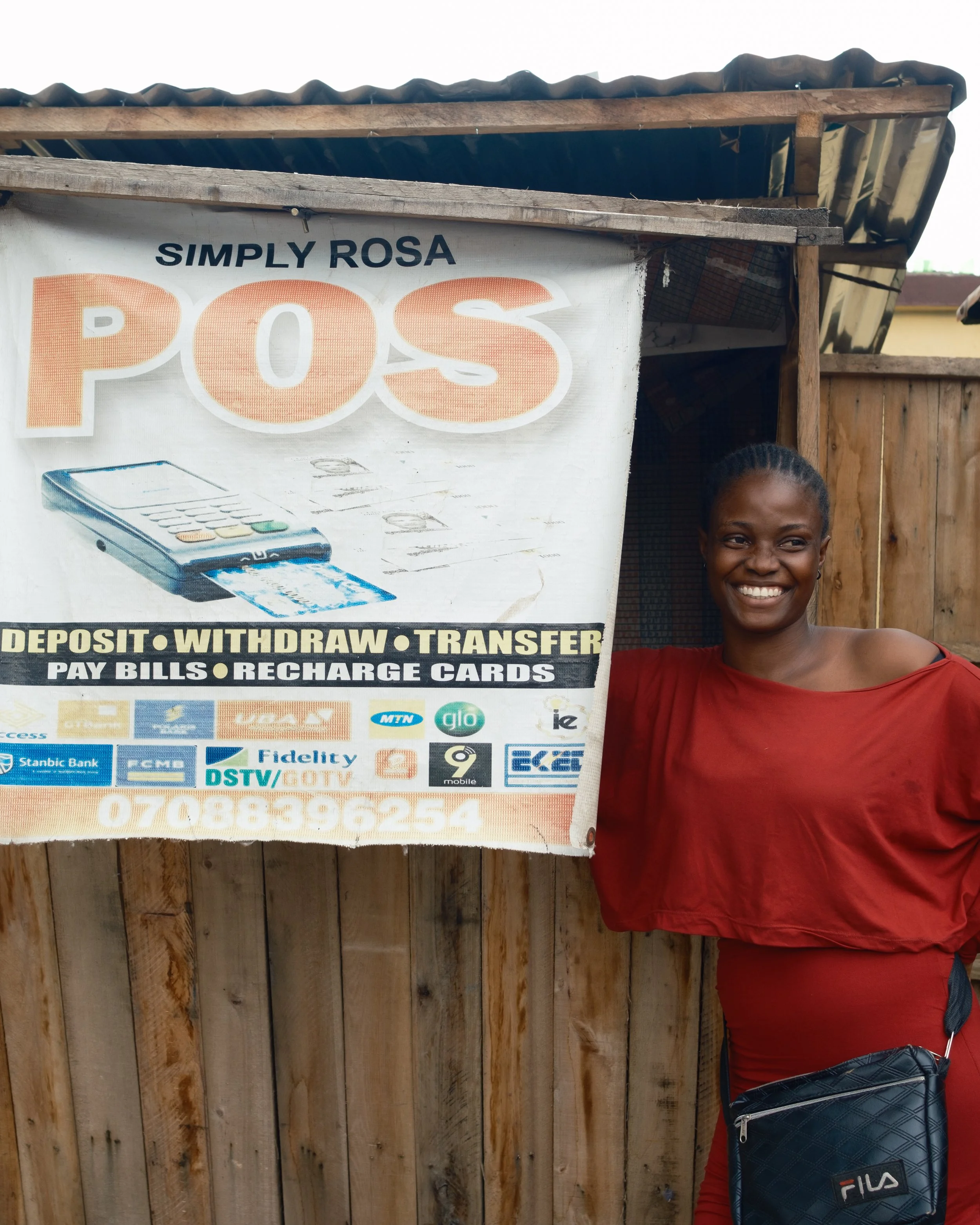POS Available Here is a new project by Nigerian-Canadian visual artist Kosisochukwu Nnebe.
It draws inspiration from point-of-sale (POS) stands found at street corners and market stalls across Nigeria to highlight financial imbalances between the Global North and Global South.
According to ONE data, $50B is expected to flow out of developing countries toward richer economies in 2024. For Sub-Saharan Africa, this imbalance has been linked to debt repayments; profit-shifting on the part of multinational corporations; tax avoidance; and illicit financial flows.
In Nigeria, the impact is felt in the day-to-day lives of the country’s most vulnerable through reduced public spending on health, education, and social protections.
Gorden Moyo notes that “the unpalatable historical and present truth is that Africa was coercively integrated into the global economy during colonial encounters”.
What results is a global financial architecture that lubricates outflows of capital and makes inflows perpetually insufficient.
Created in the context of her residency at the Jan van Eyck Academie, Nnebe’s recreation of a POS Stand in Maastricht prompts us to question the movement of capital and resources between Nigeria and the Netherlands, and the Global South and Global North.
Most importantly, POS Available Here offers the opportunity to settle the schuld (debt/guilt in Dutch) by sending money back to Nigeria.
Over the course of Open Studios (October 24-26), Nnebe will be operating the stand and accepting payments that will be sent to Nigeria, including to the POS agents whom she interviewed and worked with in Lagos.
Stay up to date with the project by visiting the artist’s website and signing up to the newsletter:
Kosisochukwu Nnebe (b. 1993, Nigeria) is a neurodivergent Nigerian-Canadian conceptual artist and researcher working across installation, lens- and time-based media, and sculpture. Her work challenges dominant narratives by transforming the vernacular and commonplace—from native languages and foodstuffs such as cassava to physical spaces such as nail salons—into counter-archives of colonial histories. Through her practice, she excavates and reclaims gendered histories of resistance, offering transgressive representations and understandings of Blackness rooted in anti-imperial relationality. At its core, Nnebe's practice is invested in anti-imperial worldbuilding through the troubling of colonial logics and speculative reimaginings of otherwise pasts, presents, and futures.
A self-taught artist, Nnebe uses her practice to critically engage with her educational background in economics, development, and sociology from McGill University and the London School of Economics, as well as her professional experience in social, economic and environmental policy with the Canadian government
Photo credits: Ofem Ubi




